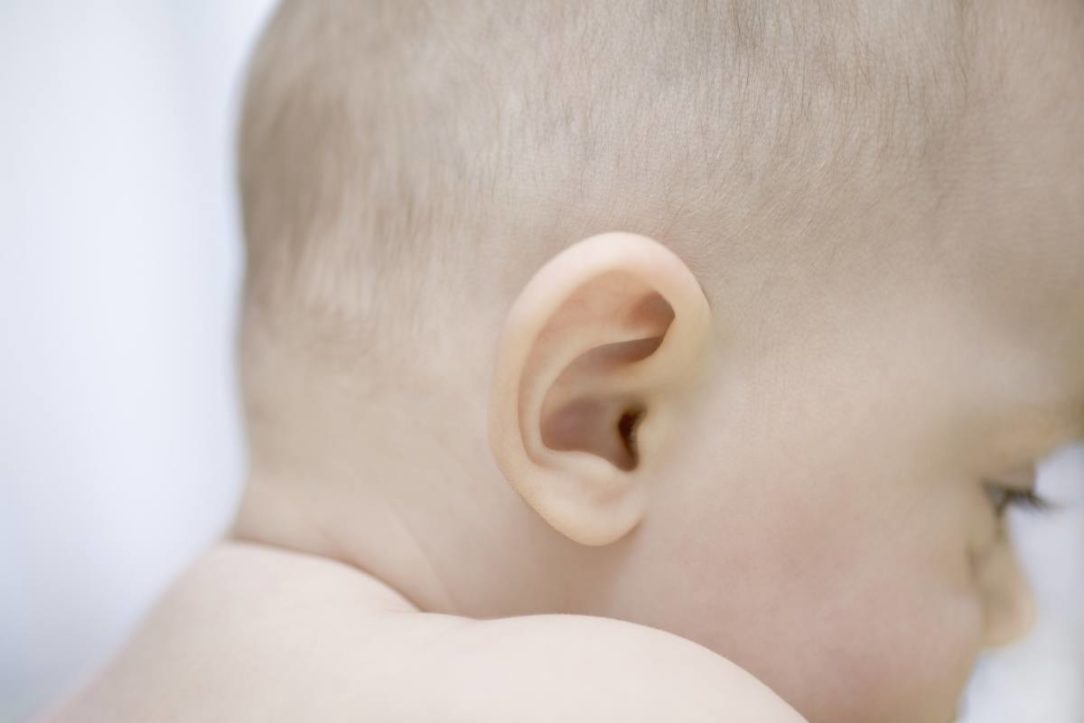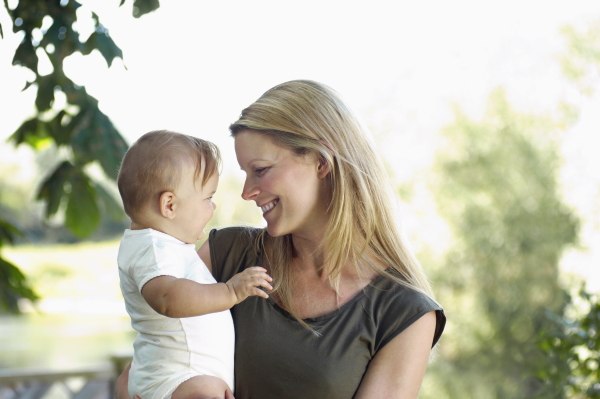All babies should have a hearing test performed before coming home from the hospital, according to the National Institute of Health. That’s because about 1 in 500 babies are born with hearing loss, and catching auditory issues early can help your child receive treatments and training that may improve their long-term speech and hearing function.
Pediatric Ear, Nose, and Throat Doctors (ENTs)
Your baby’s hearing may be tested by a pediatric ENT doctor, or you may be referred to one if any issues have been discovered during a hearing test. Pediatric ENTs specialize in ear, nose, and throat health in infants, babies, and children, they can determine whether your child has typical hearing, or is experiencing some amount of hearing deficit.
Hearing Development Timeline for Babies
Babies develop a sense of hearing during the third trimester of their mother’s pregnancy. Thus, most babies are born with the ability to hear their surroundings and may already be familiar with their family’s voices. Once born, the National Institute of Health directs that all babies should be given a hearing test, and reports that all but 4 percent of births are currently tested.
By one month of age, a baby will typically be able to respond to voices, loud noises, and familiar sounds. Hearing can be tested in this period at your pediatric ear, nose, and throat doctor’s office using a soft tool that rests over the baby’s ear. If any hearing loss is detected, measures to protect the quality of speech can be assigned.
Between 3 and 6 months of age, babies develop more precise hearing and can be expected to begin vocalizing in response to sounds and voices. Your pediatric ear, nose, and throat doctor can assess if whether or not your baby is on track and their hearing is developing properly.
Hearing Issues that May Arise During a Baby’s Development
While a small percentage of babies are either born with hearing loss, or develop hearing loss during the first year of life, some issues that can create hearing development obstacles can be easily remedied. This includes an excess of fluid or wax in the ear canal or fluid blockages that can form in the tubes that lead to the ears.
Ear infections can also arise, which may cause reversible hearing loss in babies, but can often be treated with a simple round of antibiotics. Babies that develop frequent ear infections or excess fluid in the euchastian tubes may be candidates for a small procedure where artificial linings are temporarily placed in the tubes to allow for improved drainage.
Hearing development checkups are an important part of infancy. If you suspect your baby or child may have a hearing deficit, or if they’re showing signs of being unconformable from excess fluid in the ears, you should schedule a hearing development checkup with your pediatric hearing doctor. This can bring reassurance when there’s a self-resolving problem, or even protect your baby’s auditory and speech development when there’s an issue that needs treatment or speech training.


